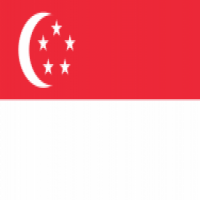Summary:
A Singapore institute of higher learning has developed an Internet of Things (IoT) software architecture with a decentralised framework that allows the autonomous exchange of data between IoT devices without any centralised server.
Designed to help modern farmers monitor the entire farm, it is equipped with detailed data tracking and analytics, and is customisable for other applications.
The institute seeks licensing or commercial partnerships with technical assistance with MNEs/SMEs.
Description:
The Singapore institute of higher education has designed this IoT platform to assist the modern-day farmers in monitoring the entire farm seamlessly. It can be customized to suit each farm depending on the type of sensors, machine vision camera, cloud storage, etc.
In recent years, the development of IoT applications has become increasingly complex. This technology addresses this challenge by providing the ability to simplify the streaming of data to the IoT platforms over the web.
This decentralized IoT architecture has a collection of mostly autonomous processors (nodes) communicating over a communication network and offers the following features:
• Light-weight runtime which takes full advantage of its even driven, non-blocking model. This makes it ideal to run at the edge of the network on low-cost hardware such as Raspberry Pi as well as in the cloud.
• Real-time data can be easily imported and exported for sharing with others.
• Plug & Play which makes it easy to connect various sensors.
• Fault tolerant architecture allows information to be accessed from other nodes, even when a particular node fails.
• Equipped with detailed data tracking and analytics to provide the accurate data on the plant growth process from start to finish.
In this system, each node runs a distinct component of the web server application software and identical copies of each other. Upon a node failure, the application software can be easily replaced by another good node. The failure and restoration processes of the hardware and software are highly dependent on the status of other components as well as the sequence of failure events. Data can be downloaded from each individual node or from the consolidated database in the cloud.
This IoT platform architecture can be customised and can be applied to the following markets:
• Outdoor farming
• Indoor farming
• Laboratories/research/education institutions
• Home hobbyist
• Fire alarm system and electrical system for office buildings, homes and hotels
The Singapore institute is keen on the following types of agreements with MNEs or SMEs of all sizes:
i) Licensing agreement where further development can be carried out by the partner to commercialise and introduce to the market.
ii) Commercial agreement with technical assistance - Technical support from the Singapore institute can be rendered to the partner utilising the IoT platform.
Type (e.g. company, R&D institution…), field of industry and Role of Partner Sought:
The Singapore institute is interested in the following types of partnerships with MNEs or SMEs of all sizes:
i) Licensing agreement - The partner could license the technology for further development and introduce it to its customers.
ii) Commercial agreement with technical assistance - The partner could utilise the IoT platform architecture with technical support from the Singapore institute.
Stage of Development:
Project already started
IPR Status:
Secret Know-how
External code:
TOSG20200717001








